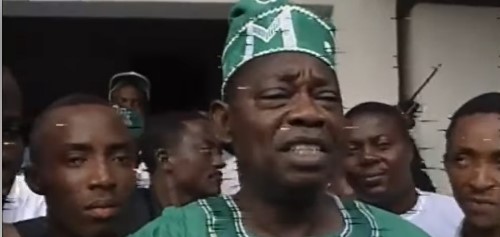The annulment of the June 12, 1993, Nigerian presidential election, a landmark event in the nation’s history, continues to evoke strong emotions and demands for accountability. Former military president, General Ibrahim Babangida, who orchestrated the annulment, recently admitted in his autobiography that the late Chief Moshood Kashimawo Olawale Abiola, the presumed winner of the election, indeed won. While this admission has been viewed as a step towards acknowledging the historical injustice, it has also sparked renewed calls for a more comprehensive response, particularly from the Bola Tinubu Support Organisation, UK chapter. They argue that a mere admission of guilt is insufficient and demand a formal apology from Babangida to the Nigerian people for the profound and lasting damage caused by his actions.
The June 12 election, widely hailed as the freest and fairest in Nigeria’s history, held immense promise for the nation’s democratic transition. Abiola’s victory, cutting across ethnic and religious lines, symbolized a unified Nigeria yearning for democratic governance. However, Babangida’s annulment shattered this hope, plunging the nation into political turmoil, widespread protests, and international condemnation. The annulment not only denied Abiola his rightful mandate but also undermined the democratic aspirations of millions of Nigerians who had participated in the electoral process. The subsequent arrest and eventual death of Abiola in detention further deepened the national wounds and fueled resentment towards the military regime.
The Bola Tinubu Support Organisation argues that Babangida’s recent admission, while a positive development, falls short of addressing the magnitude of the injustice. They emphasize that a formal, public apology is crucial for national healing and reconciliation. They contend that simply acknowledging the fact that Abiola won the election does not adequately address the pain, suffering, and lost opportunities that resulted from the annulment. The group insists that a sincere apology would demonstrate a genuine willingness to confront the past and begin the process of healing the deep-seated wounds inflicted on the nation’s psyche.
Furthermore, the organization calls upon the National Assembly to take a proactive role in addressing this historical injustice. They suggest that a televised public apology by Babangida, coupled with reparations for the Abiola family, would be a fitting gesture of restorative justice. They highlight the tragic assassination of Kudirat Abiola, MKO Abiola’s wife, who was killed while campaigning for her husband’s release and the restoration of democracy. Her death stands as a stark reminder of the sacrifices made in the struggle for justice and democracy in Nigeria. The group believes that official recognition of these sacrifices, through both an apology and reparations, is necessary for true reconciliation.
The demand for an apology from Babangida transcends mere political rhetoric. It represents a fundamental yearning for accountability and closure for a nation still grappling with the legacy of a stolen mandate. The annulment of the June 12 election represents a significant turning point in Nigeria’s democratic journey, a moment of profound disappointment and betrayal. The call for an apology is not simply about revisiting the past; it is about acknowledging the enduring impact of the annulment on the present and future of Nigeria’s democracy.
The Bola Tinubu Support Organisation’s demand for an apology from Babangida is a poignant reminder of the unfinished business of June 12. It underscores the importance of confronting historical injustices, not just for the sake of the past, but also for building a more just and equitable future. They argue that true reconciliation requires more than mere words; it requires a genuine acknowledgment of wrongdoing, a commitment to restorative justice, and a collective effort to learn from the mistakes of the past. By demanding an apology, the organization seeks to ensure that the sacrifices made in the struggle for democracy are not forgotten and that future generations can learn from this pivotal moment in Nigeria’s history. They believe that a sincere apology from Babangida would not only bring closure to the families of those who suffered but also contribute significantly to healing the nation and strengthening its democratic foundations.


